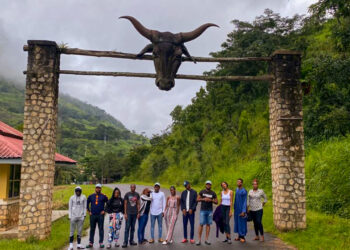African leaders and trade experts are warning that without urgent investment in modern border posts and digital checkpoints, the African Continental Free Trade Area (AfCFTA) risks being crippled by the same bottlenecks that have long stifled cross-border commerce.
Speaking at the sixth Africa Resilience Forum in Abidjan, speakers said outdated infrastructure, entrenched corruption, and fragmented customs systems are undermining the free movement of goods and people — the very foundation of AfCFTA’s promise.
“The ideal is to have a single border post between countries – if we were to have strong infrastructure like that, it would help facilitate trade,” said Mohammed Abdiker, Chief of Staff of the International Organization for Migration (IOM). “But infrastructure alone is not enough. We need sustained political will.”
The IOM has piloted such systems before, including a joint border post between the Democratic Republic of Congo and Rwanda that later stalled. Abdiker revealed that a new AfDB-supported project is underway at the Central African Republic–Cameroon border.
Launched in 2021, AfCFTA is designed to unite 49 ratifying countries into a single $3.4 trillion market of 1.3 billion people. But despite the scale, weak border infrastructure has left lofty goals clashing with harsh realities.
The African Development Bank has financed One Stop Border Posts (OSBPs) across East and West Africa, including between Tanzania and Kenya and a juxtaposed checkpoint between Benin and Togo. Yet officials say limited technology adoption and rent-seeking practices keep trade flows painfully slow.
Magdalene Dagoseh, Liberia’s Minister of Commerce and Industry, called for a digital overhaul. “By digitising the various border points, we can fight corruption – we know how many people have left or entered, and this prevents other problems,” she said.
Experts estimate inefficiencies at African borders increase the cost of trade by as much as forty percent, leaving African producers less competitive than foreign importers.
Ziad Hamoui, President of Borderless Alliance, warned that ignoring Africa’s vast informal economy could undermine AfCFTA’s future. “Today, the volume of trade in the informal sector is higher than in the formal sector. If you don’t know what’s going on at the borders, you won’t know how to manage it,” he said.
Despite commitments on paper, traders across Africa still report long queues, arbitrary fees, and inconsistent rules. Abdiker cautioned that the biggest risk is political inertia. “Each year of delay is a lost opportunity,” he said. “Without decisive reforms, the single African market will remain just a paper agreement.”





